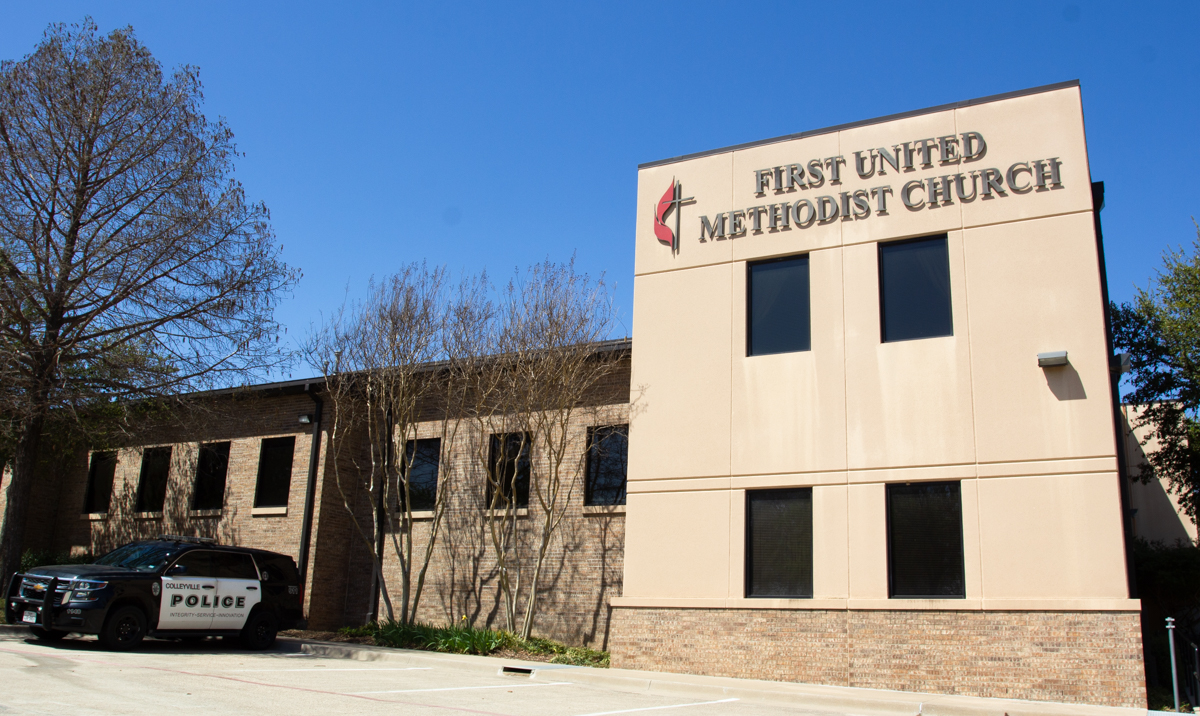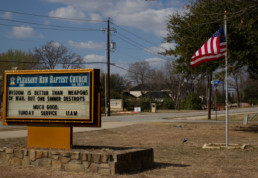How the Synagogue Hostage Crisis Changed the DNA of Colleyville, Texas
As Congregation Beth Israel reopens, interfaith efforts deepen and houses of worship intensify security measures, adapting to “a more violent world.”
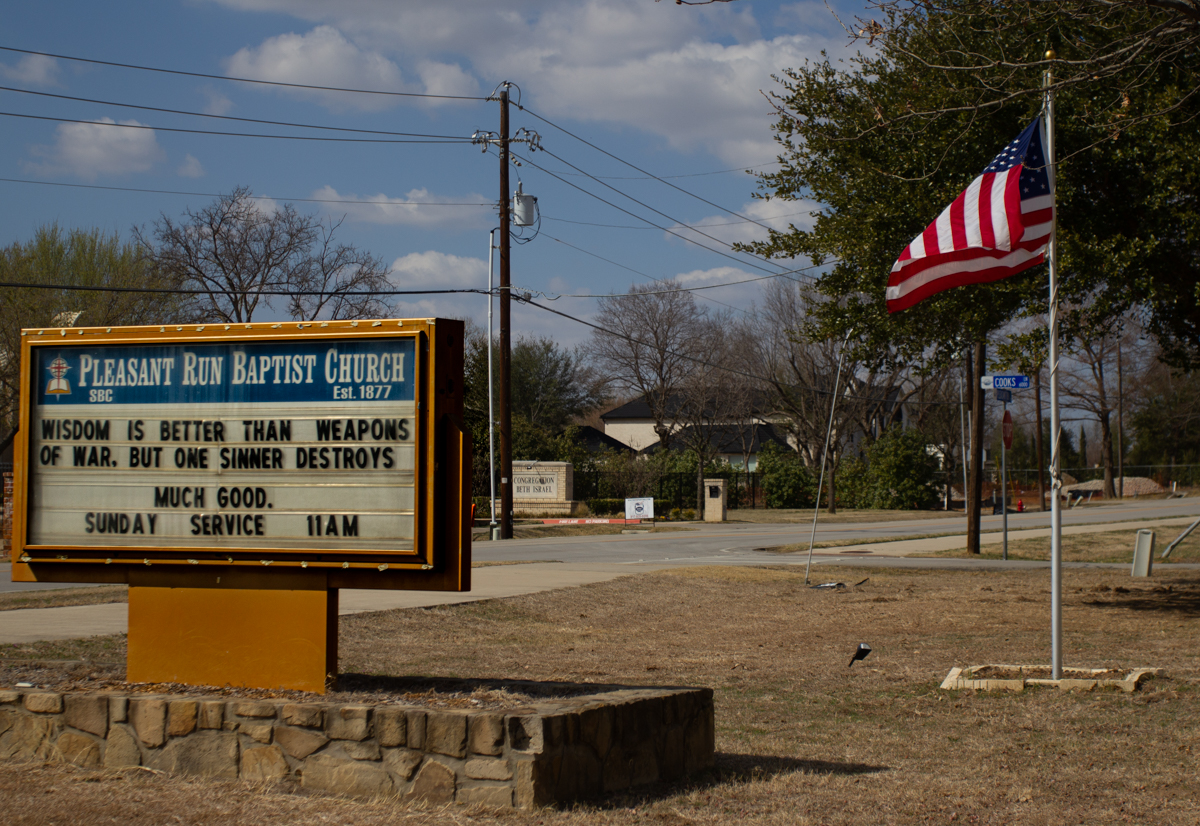
COLLEYVILLE, Texas – On Jan. 15, Colleyville, a small suburb just miles from the Dallas-Fort Worth Airport, was thrust into the national spotlight as a gunman, armed with a pistol, took four people hostage for 11 hours in the Congregation Beth Israel synagogue. All four hostages escaped unharmed before the suspect was shot, authorities said. The FBI labeled the incident as a terrorist act and hate crime.
But this acutely religious North Texas town with 28 houses of worship in its 13 square miles, did not retreat in fear and suspicion. Instead, it reconceived of the terror attack as a beacon of hope. Since the live-streamed standoff, religious leaders in Colleyville mobilized to ensure the safety of their believers and buttress the area’s robust interfaith system.
After nearly three months, the synagogue, which has been closed as a crime scene, is reopened to its 150 members on April 9. Since the incident, the congregation was hosted by the First United Methodist Church of Colleyville, one mile away. Now that it is back in its home, Congregation Beth Israel will have a police presence at every event. For Colleyville’s Jewish believers like Howard Rosenthal, former president of the Beth Israel Congregation, restarting services in the synagogue with reinstalled bulletproof windows feels like “moving forward.”
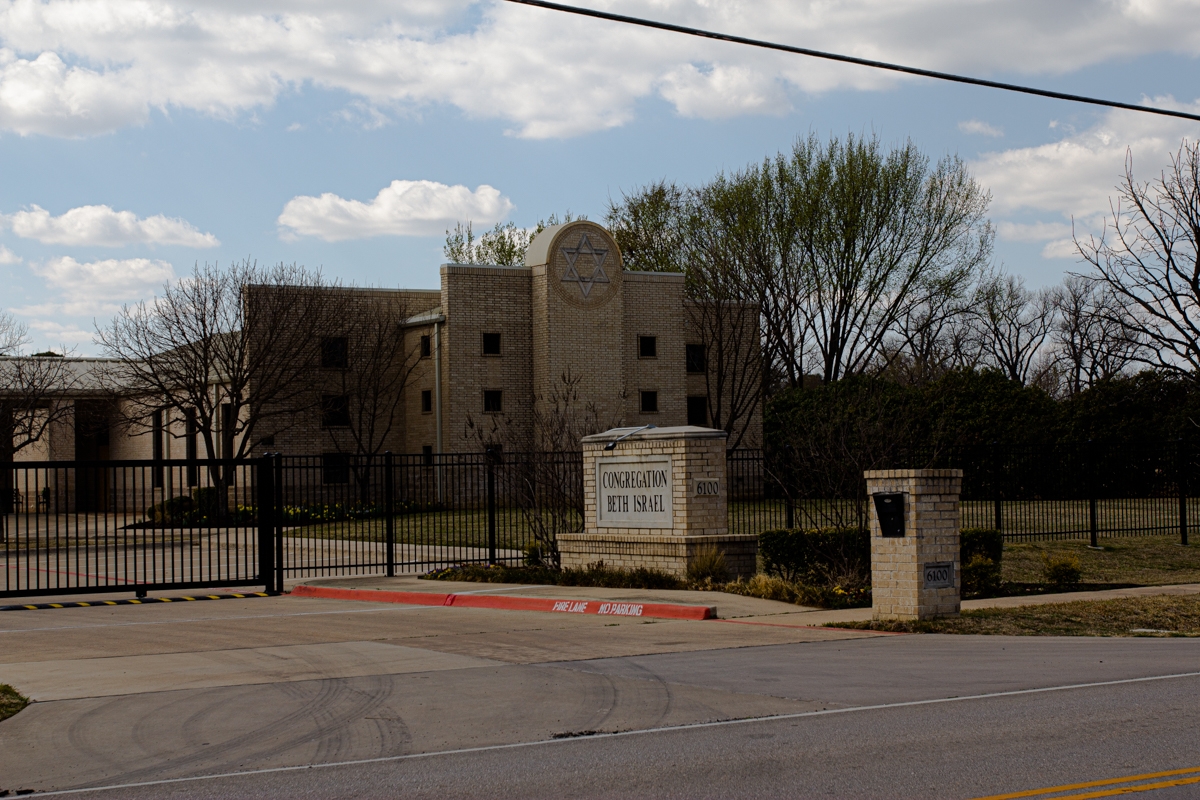
Interfaith activists in Colleyville, which is overwhelmingly comprised of Christians, said they want to set the record straight, referring to what they call the town’s mischaracterization in national press outlets. The scandals plaguing Dallas-Fort Worth have garnered media attention after the 2021 Capitol insurrection (which involved residents from DFW) and last year’s Critical Race Theory controversies at Colleyville public schools. Despite North Texas stereotypes, 21 religious community groups have been building interfaith bridges for four years under the umbrella of Peace Together, which was founded after racial and religious tensions unleashed at a 2017 “Unite the Right” rally in Charlottesville, N.C.
“We will have a safe, loving and committed community so we can go forward and not focus on the past,” said Rosenthal.
Having lived in DFW for 19 years, Rosenthal leads Peace Together and organized interfaith healing ceremonies after Jan. 15. Rosenthal was teary-eyed while recalling how interfaith leaders rushed in to help during and after the crisis.
As Rabbi Charlie Cytron-Walker of Congregation Beth Israel wrote in The New York Times:
“My congregation and I received an outpouring of love and support from strangers. If we begin with that love of the stranger, but offer it not in response to violence, but encouraged by empathy, we might just change our world.”
Everyone from Muslims to Catholics to Mormons stepped up. The Colleyville Texas Stake of The Church of Jesus Christ of Latter-day Saints, a member of Peace Together, has a deep respect for people who worship in different ways because Mormons have a history of persecution, said Leslie Horn, the Media Specialist at the church. Horn described Jan. 15 as a defining violation for her church. Still, the subsequent press coverage “missed a lot of the good,” she said.
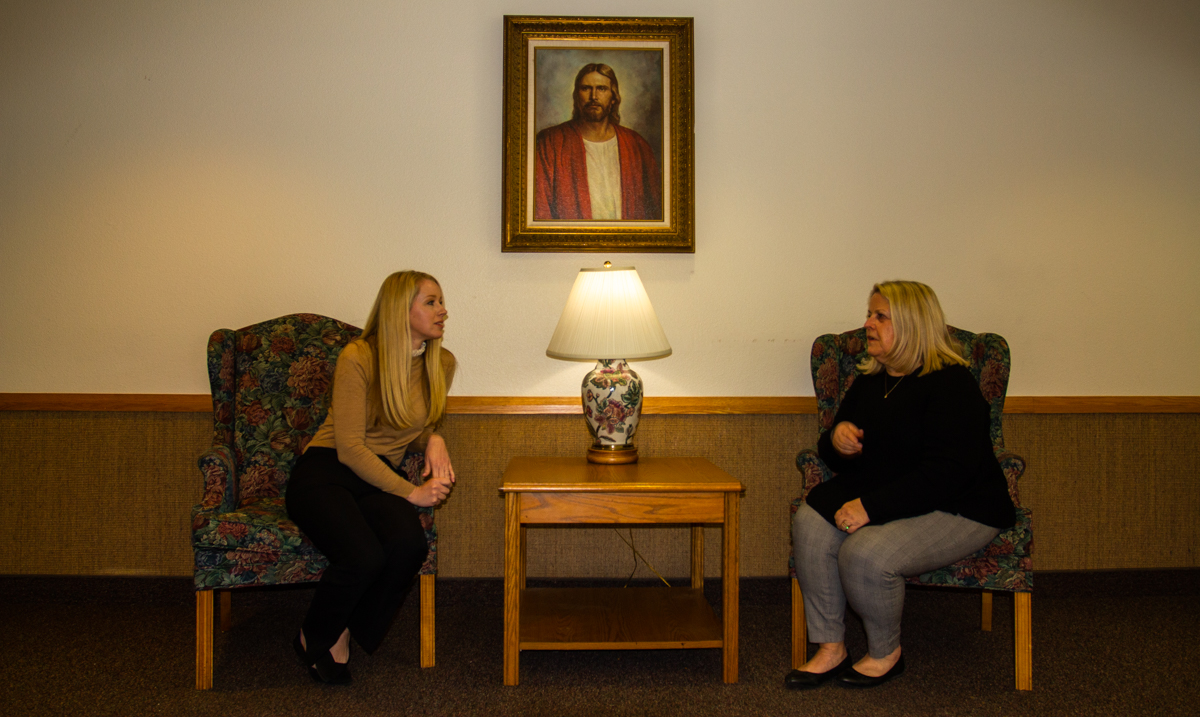
“In Texas, there tends to be this belief that we aren't diverse in thought, people and faiths,” Horn said. “But if you've spent any time living here, you quickly realize that’s not true. If you know anything about interfaith work, you know Colleyville is a leader.”
Horn said she could not fathom the juxtaposition of savagery in a sacred space. Horn, like so many religious observers in Colleyville, found herself in disbelief and kept asking herself, “Why Colleyville?”
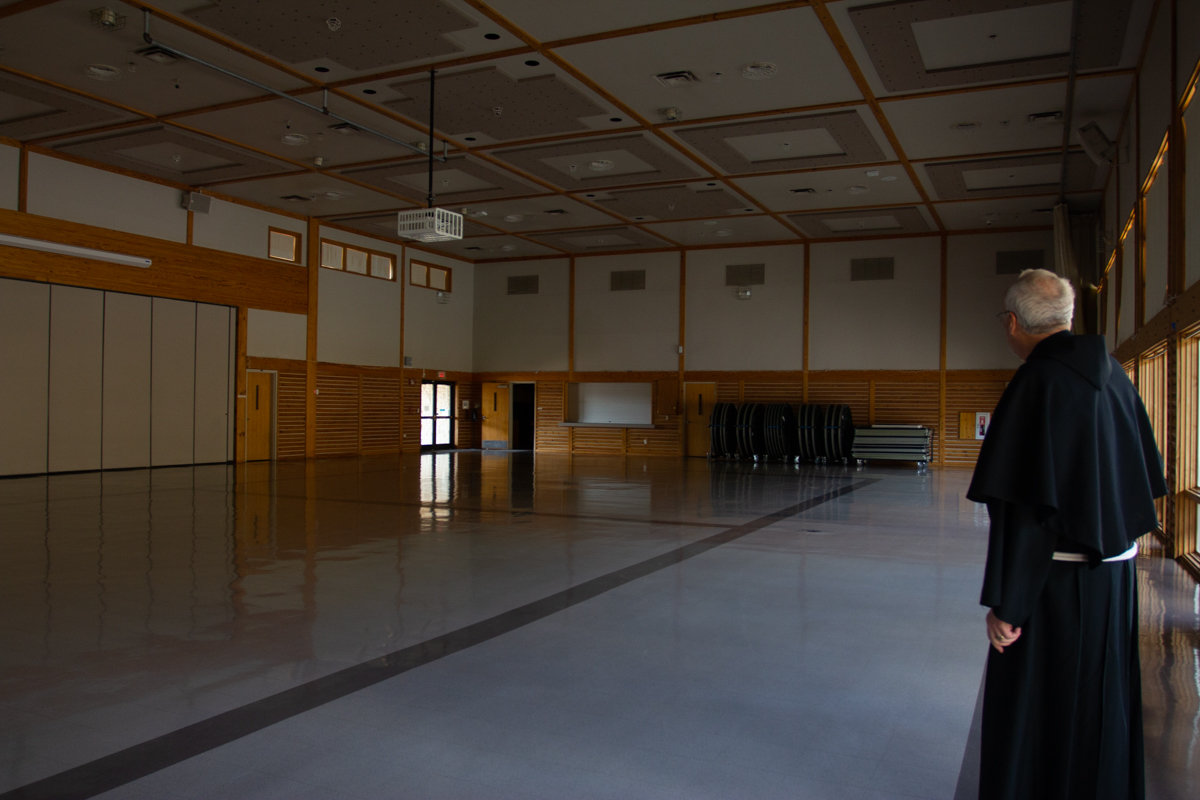
Rev. Michael Higgins, the senior priest at Good Shepherd Colleyville, shared Horn’s shock. Even though the standoff was “hectic and surreal,” Good Shepherd Colleyville jumped into action. For ten hours during the standoff, Higgins’ church, just one block away from the synagogue, hosted the press, the four spouses of the hostages and the local police. After the dust settled, Good Shepherd continues to seriously consider beefing up its security measures, said Higgins. Still, he refused to cancel Sunday services the next day, opting to pray for the town.
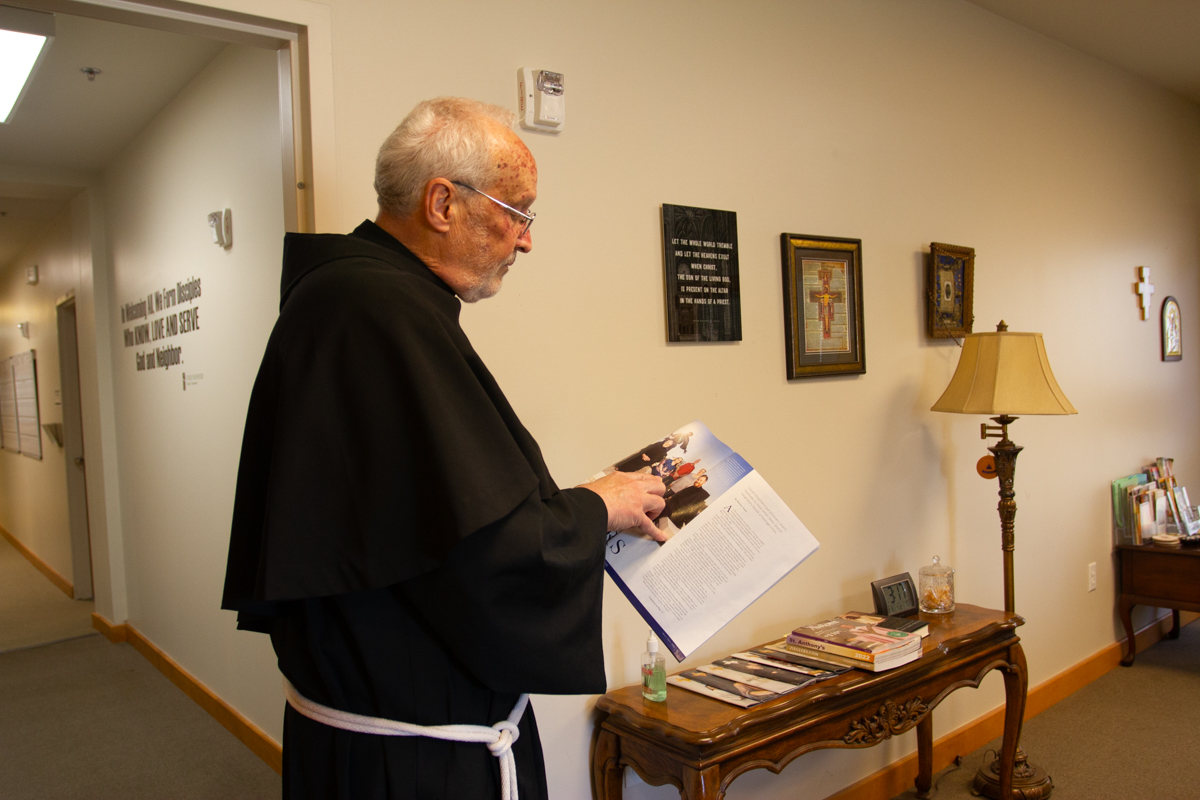
“Despite all the evidence to the contrary, God loves us,” Higgins said.
It is unfortunate that an event like this would be the catalyst for the country to be introduced to Colleyville. But January 15, Higgins said, was an immediate rallying of all faith traditions, which brought to light the reality of the tight community in Colleyville. Higgins has led the interfaith alliance in Colleyville since 2020.
“We were just trying to be of service,” Higgins said. “This shouldn't be special.”
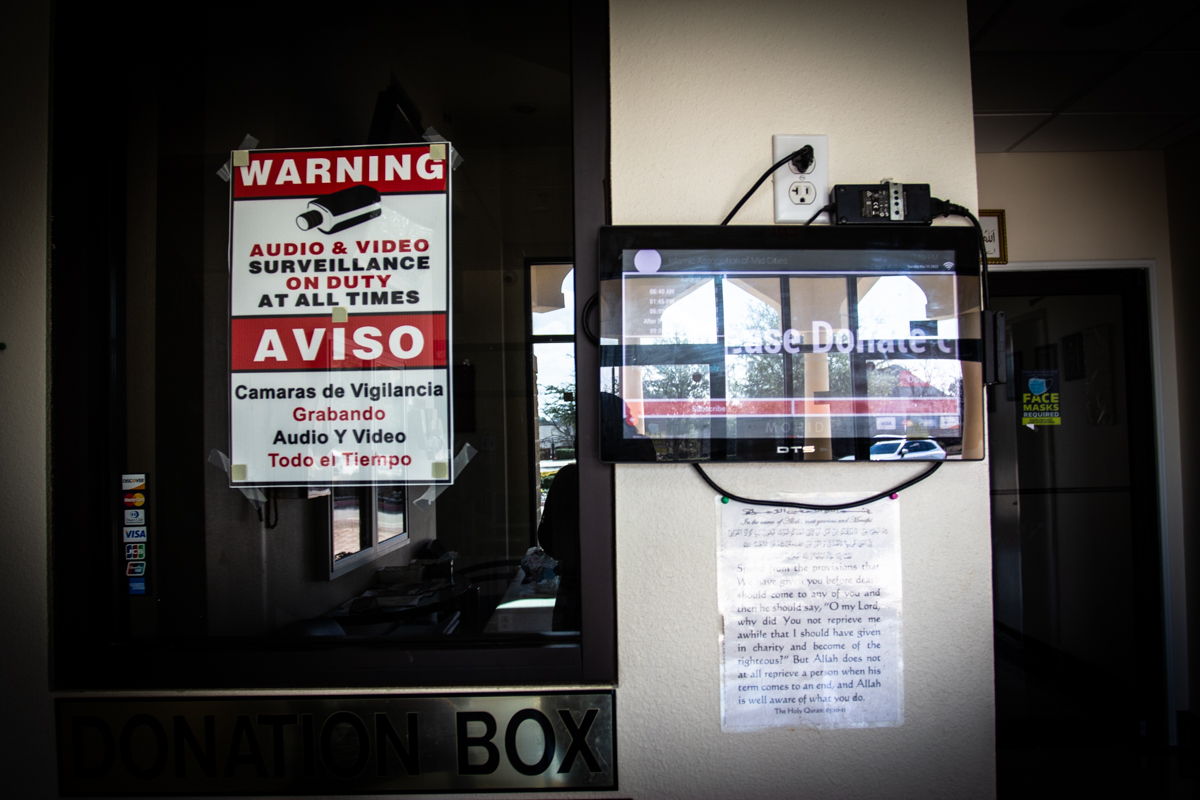
Abdul Rashid Khan, a founding member of Colleyville Masjid, said his house of worship is no stranger to the eerie sensation of looming danger. His gated mosque has had security since Sept. 11, 2001, and reactively increased its surveillance measures since Jan. 15. Khan, a friend to hostage Cytron-Walker and participant in interfaith meetings, said he could easily imagine a similar crime happening in his mosque. To cope and maintain hope, Khan has thrown himself into interfaith work.
“Our prophet Mohammed used to visit other religious spaces so that he could set an example of how his faith should be respected,” Khan said. “We follow that example.”
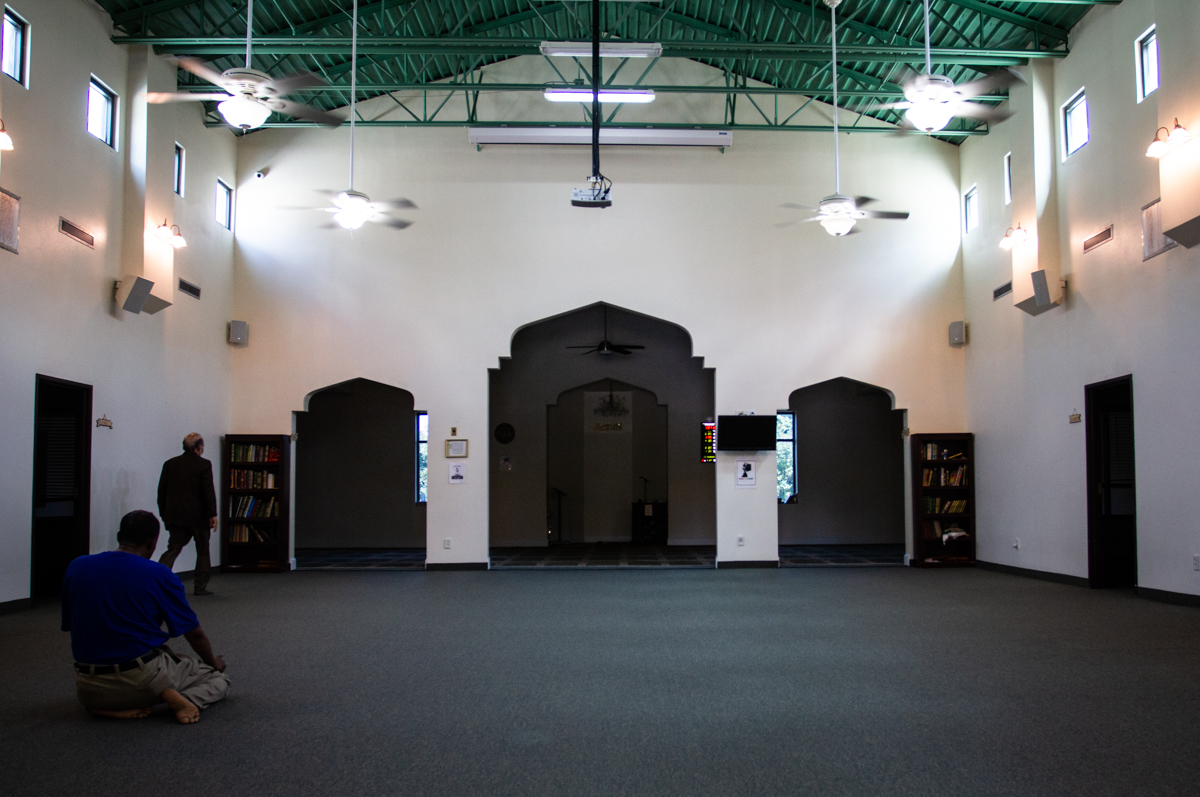
Katie Newkirk, a pastor at First United Methodist Church of Colleyville, reviewed her church’s safety policy after the “defining moment” of Jan. 15, installing new security systems and implementing training sessions for church staff. Still, she said Colleyville’s transformation in the past few months is twinged with optimism as local comradery has outshone religious differences.
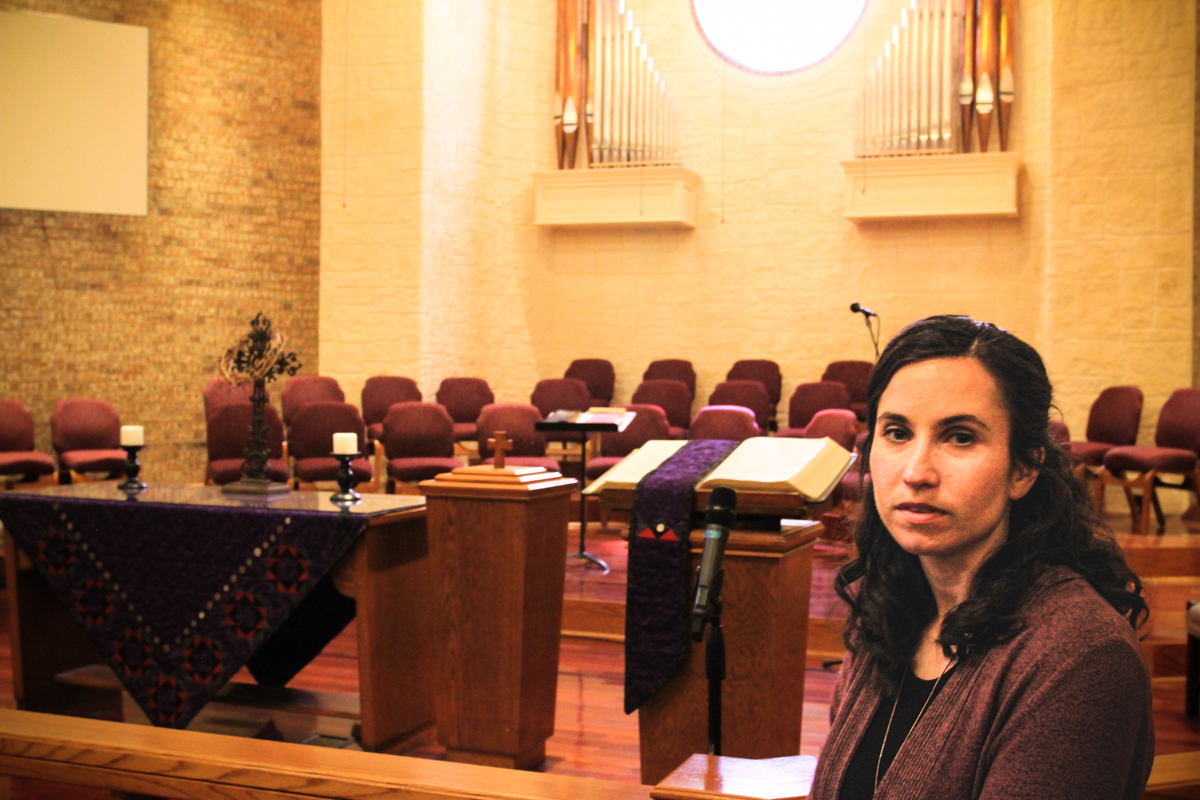
“It’s been a beautiful time to come together,” Newkirk said. “I don’t think God causes bad things to happen, but God brings good outcomes from messed up situations.”
